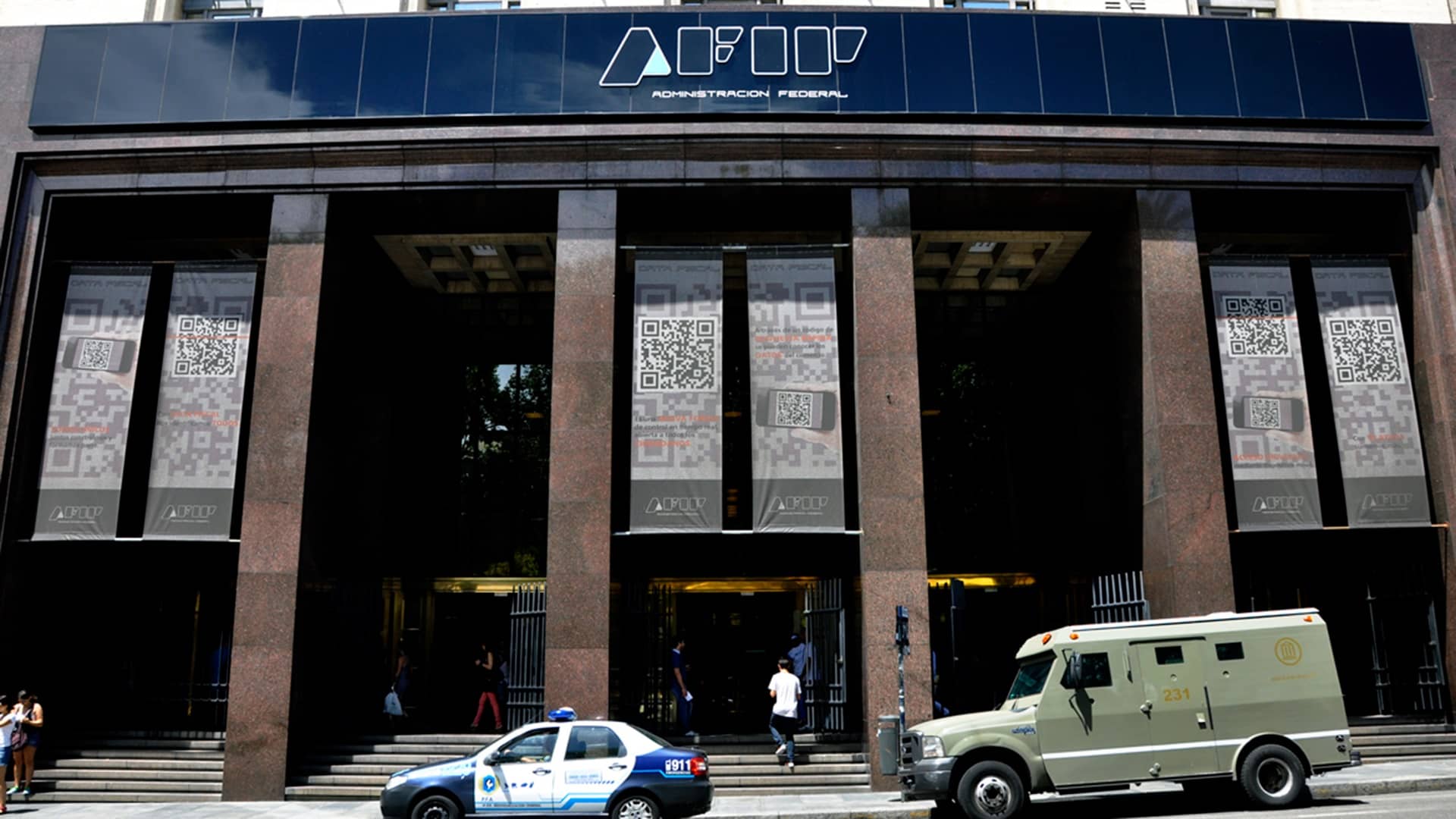
Kirchnerism insists on recovering property taxes. Despite the fact that when it was approved in 2020 it was established that it was of a “special” nature, the deputies of Front of All presented a new project that, this time for 10 years, implement it again.
The initiative was proposed by Pablo Carro, the national legislator of the Government of the Cordova Government, and the Secretary General of the CTA of the province, who, through his official Twitter account, announced the bill “Contribution of interim solidarity to mitigate the impact of debt with the IMF”. “This is a donation that will be paid for 10 years by the richest people in the United States to reduce debt (with multilateral credit institutions),” he said.
He explained in a tweet thread that “Argentines and Argentines with the greatest wealth, whose declared assets exceed 330 million pesos,” will pay a new tribute.
“Why do I need this contribution? We must ensure that the burden of debt does not fall back on workers, retirees.” Justified the deputies of Front of All.
“We need the richest sector in Argentina to support public financing plans to restore productive and social security structures in Argentina and the Argentine province.” The initiative is accompanied by two other Kirchner deputies: Maria Rosa Martinez and Hugo Yaski. “Take solidarity as a rule. The largest number of people should work to mitigate the impact of unprecedented debt.” Carro concludes.

The first property tax law, officially named the “Solidarity and Special Contribution Act,” was passed at the end of 2020 and ruled over the months of that year to mitigate the economic impact of the COVID-19 pandemic and the resulting containment. In this debate, government lawmakers claimed a recurring opportunity to be charged “one-time” costs to humans with assets of more than $200 million.
The government expected to raise about 400 billion pesos, but a year later, in December 2021, the Federal Public Importing Agency (AFIP) reported: The Ministry of Finance raised $237.3 billion paid by more than 10,000 people for less than 60% of the estimated amount. This initiative sparked a wave of legal action to prevent collection and forced companies, experts and technicians to try their luck outside Argentina.
In the middle of last year, officials from the economic sector collected much less than intended, and despite the fact that they were afraid to invest, they tried to include a new property tax in the draft budget 2022. A few weeks ago the idea was raised again. Council of the District Justice Party of Buenos Aires At the meeting, the local senator Omar Plaini proposed to renew and implement it during the period of debt to Argentina's International Monetary Fund (IMF). At the Peronism Conference held in Buenos Aires, Máximo Kirchner approved the proposal with applause. Plaini's proposal was very similar to the proposal presented by Carro on Tuesday from his deputies.
Despite Kirchnerism's intentions, not everyone in the government agrees to redo the tribute, and in recent years it has caused criticism among accountants, experts and tax advisers.
“The reality is that property taxes have failed. Very few were collected, there were many lawsuits, and in many cases, according to the forfeiture test, 7.5%, which yields the maximum tax rate of Grand Fortune Tax (5.25%) and Personal Property Tax (2.25%), exceeded the income of obstructed assets. He said that judicial resistance is a long way.He said that judicial resistance is a long way.He said that judicial resistance is a long way. It said it would reach the Supreme Court for more than five years.
“In Argentina, we are used to the fact that what is done during the only time is permanent, but the legal nature of 'special contribution' is clear,” Litvin said in a conversation with Infobae last month. It is a tax and if it is repeated, it will continue to do so,” he warned.

The core of the new project
The bill on temporary solidarity contributions to mitigate the impact of debt with the International Monetary Fund (IMF), announced to deputies this Tuesday, states that the next will be reached.
- For all human and undivided inheritance residing in the country, domestic and foreign property, they are included and evaluated in accordance with the conditions established in Title VI of Law 23.966, the Personal Property Tax, the text ordered in 1997 and its amendments. Regardless of the treatment for this, on the effective date of this law, it imposes a minimum amount of tax exemption without deducting it.
Likewise, human beings of Argentine nationality whose place of residence or place of residence is in “non-cooperative jurisdictions” or “jurisdictions with low or no taxation” under Articles 19 and 20 of the Income Tax Code, respectively, the texts ordered in 2019 and their amendments are considered subject to residents for the purposes of this contribution.
- Human beings living abroad and undivided succession, except those mentioned in the second paragraph of the previous paragraph, the conditions established in Title VI of Law 23.966, the text ordered in 1997, and the treatment of this levies without deducting the minimum amount of tax exemption on the date of entry into force of this law for all property of the country that is included and valued in accordance with the text ordered in 1997 and its amendments.
- In the case of subjects reached in accordance with the provisions of paragraph, the basis for the decision referred to here is calculated, including contributions to the foundations of trust, trust or private interests and other similar structures, participation in companies or other entities without taxes, the nature and direct or indirect participation in any kind of company or other entity that exists on the effective date of the present law.
The project plans to collect 1.50% of the assets of individuals who declare $320,000,000 or more. For goods between $400 million and $600 million, it will pay 1.75% to $825 billion for surpluses of $450 million, and between $600 million and $800 million, pay 2.00% on surplus of $13.25 billion for $600 million, and $18,75 for $8 billion in surpluses of $800 million. This is the amount plus 25%.
For assets ranging from $1.5 billion to $3 billion, we would pay $1.5 billion in surplus plus $39.75 billion plus 2.50%. After $3 billion, we would pay $88,500,000 plus 2.75% for $3 billion in surplus.
In relation to foreign assets, the interest rate ranges from 2.00% to 4.25%, depending on the declared assets.
Keep reading:
Últimas Noticias
Debanhi Escobar: they secured the motel where she was found lifeless in a cistern

The oldest person in the world died at the age of 119

Macabre find in CDMX: they left a body bagged and tied in a taxi
The eagles of America will face Manchester City in a duel of legends. Here are the details

Why is it good to bring dogs out to know the world when they are puppies




